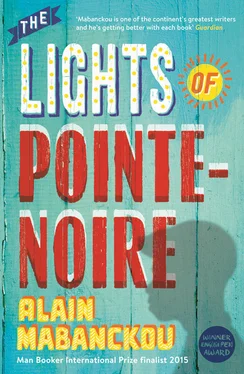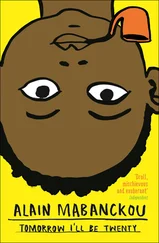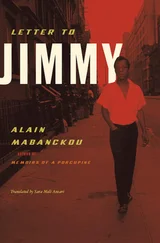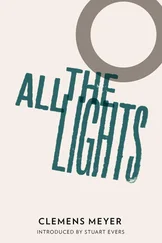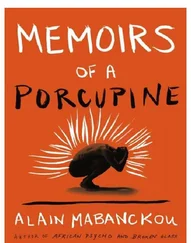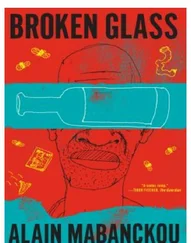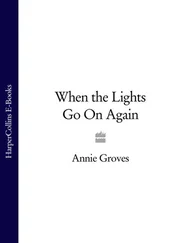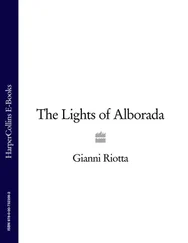I gave a little cough behind Uncle Matété, as he stood there looking out at the Adolphe-Sicé hospital. He turned round and asked me very seriously:
‘Tell me truthfully: have you ever eaten hind or stag meat?’
‘No!’
‘That is a relief, nephew, you did listen to me, then! You can’t imagine how I worried about you!’
We go back into the living room. Since he arrived unannounced, I’ve nothing to offer him. In the kitchen I find three eggs, which I break and throw into a pan. I break off three bananas from the bunch he gave me. While I’m busy making the food, I feel his presence behind me.
‘Nephew, what are you doing?’
‘I’m making you something to eat.’
‘No, no, don’t do that… In any case, I don’t eat eggs, and you can’t serve me the bananas I gave you!’
At a loss, I suggest we go and eat out in the Rex neighbourhood. He turns down my offer:
‘I didn’t come here for that, nephew. I simply wanted to make sure you were all right, that you hadn’t eaten stag or hind meat in all these years. I introduced you to your animal double, the fawn you saw in your dreams when you were only ten years old. That little creature is still out there in the bush, he’ll live as long as you, or you’ll live as long as he does…’
‘Uncle, I know why you came: you want me to go and see my animal double in Louboulou.’
‘No, no, it’s too far, I don’t suppose you’ve got the time with everything you’ve got to do in the few days you’ve got left here. Your double will understand, but you must give him something, I’ll pass it on to him when I go down there next month…’
‘Ah! I get it! How much?’
‘Nephew, don’t you disappoint me, I know you live in a country where money is everything, but believe me, it’s not the only thing that matters in this world. The thing that has kept you alive this far is without price…’
‘What can I give to an animal I’ve only seen once in a dream when I was ten?’
‘Something that belongs to you, something of yourself…’
He digs in his pocket and takes out an empty test tube, the kind doctors use in hospital to take blood samples.
‘Put your urine in there, I’ll keep it in the freezer, then I’ll go and pour it out by the stream in Louboulou where we were thirty-five years ago. The hind and the stag are gone now, your grandparents are dead, but their son, who’s your age now, will still be there. He must smell your presence, your urine will be enough for him to continue to bless you…’
I go into the bathroom, and come back with the tube full. This time he takes a bag out of his pocket and rolls the object up inside it.
‘That’s perfect, nephew, now I must be on my way…’
I hold out an envelope, with twenty thousand CFA francs inside.
‘No, nephew, I didn’t come to see you for that.’
‘Uncle, please, take it, it’ll pay for your trip back home…’
He hesitates for a few seconds, lowers his eyes, and pockets the envelope:
‘Thank you, nephew.’

The suspended step of the stork
I write in a school exercise book, tearing out pages from time to time, for the slightest crossing out. As though the past were a straight line, like a wave, unmoving, unruffled by the wind’s caprice. Sometimes, if I’m not happy with a paragraph, I dash into the kitchen and rummage in the little bin to find what I threw away yesterday. And I keep that instead, rejecting without a second thought words I was satisfied with only minutes before, and that seemed then to be a faithful transposition of my thoughts, images prompted by this return to the cradle.
A few ‘budding writers’, as they like to call themselves here, dropped in to see me at the request of the director of the French Institute, who merely said:
‘They want to be writers, like any self-respecting Congolese, and they certainly have lots of manuscripts. I have never seen that in any other country I’ve worked in. Here, everyone is a poet! And they’ve been watching out for you for days! You must see them, and have a few words, it’s important to them. There are over a dozen of them down there, I’ve organised a little place for them to sit. No one will disturb you there…’
We talked for over two hours in a corner of the lobby, just below my apartment. Some of them were fans of the poets Tchicaya U’Tamsi and Maxime Ndebeka. Others of the novelists Henri Lopes, Sony Labou Tansi and Emmanuel Dongala. They read me their poems and waited for me to salute their genius, or tell them to revise what they’d written. They were somewhat disappointed when I suggested I had no such sovereign power.
Towards the end of these exchanges, during which each of them was trying to show his work to the others, to prove how much they deserved to be published — not counting those who had already paid to publish themselves, and who considered themselves above the others because they at least had printed proof of their status as writers — a young wordsmith asked me:
‘Why do you write?’
I was beginning to feel rather tired, and said the first thing that came into my head:
‘I don’t know why I write, perhaps that’s why I tear out pages I’ve already scribbled on, and throw them in the bin. I know I have no choice, I’ll go and retrieve them the next morning and write them again. It doesn’t matter how long it takes, as long as one day the book’s finished.’
They laughed at that, but I didn’t. Particularly since my bin right now is filled with crumpled pages…
I add it up in my head: I’ve come back to this town seventeen years after my mother’s death, seven years after my father’s and twenty-three years after I left for France. And yet the time has flashed by. I’m just a black stork, whose years of wandering now outnumber the years left to him to live. I have landed here, by the stream of my origins, one foot suspended, hoping I might stop the flow of my existence, whose smooth course is troubled by the myriad leaves blown down from the family tree.
I look for reasons to love this town, all smashed up though it is, and consumed by its anarchic growth. Like a long-lost lover, faithful as Ulysses’ dog, it reaches out its long, shapeless arms to me, and day after day shows me how deep its wounds are, as though I could cauterise them with the wave of a magic wand.
This morning I open Dark Side of the Sun , a collection of poems by that most Pontenegrin of Congolese writers, Jean-Baptiste Tati-Loutard. I come across these lines, which exactly describe my present state of mind:
I trail in the wake of a tribe that is lost,
A beast of the savannah plains, haunted
By the rhythm of another herd…
Seized by a longing to be outside of time
To wander the obscure veins of the far-flung earth
Where, relieved of a thousand earthly pains,
The poor departed wander, long forgotten…
I arrived like a migrating bird, its song half silenced, ready to accept the vast desolation of my country and to perch in the first tree with bark scuffed and scraped by the dry seasons. Perhaps I’m overstating, but the slightest silence troubles me, the least noise makes me jump, and inclines me to pull away from this inevitable encounter. I cast a candid eye on the places around me, and I know they look back at me in the same way, with big wide eyes. My shadow falls in front of me, as though showing me the way to go. Which should I trust, the shadow or the light? I see so many people shrouded in darkness, while all the time I’ve been away the sun has consumed the foundations of my childhood, and it is lost to me, ensnared in memories. I hear a voice whisper that a child will be born long ago, its teeth already in place and thick fuzzy hair on its head. So I start to dig, with the stubborn persistence of an anthropologist. My tool? A pick corroded by the salt of regret. A pick whose handle is attached by the thin wire of memory. A stubborn voice tells me that behind all the mutations of the city of Pointe-Noire, a few remnants will still be reborn from the ashes. I’ve been digging up memories so long, the town now seems to me like the Catoblepas, the indolent monster in Flaubert’s Temptation of Saint Anthony , which eventually devours its own feet. So I lend this erstwhile paradise my feet. I know if I keep on walking I’ll find the places of my childhood. Because Pointe-Noire sleeps with one eye open, the one that weeps with a single, inexhaustible tear, a tributary of sorts, that flows on towards the Côte Sauvage.
Читать дальше
